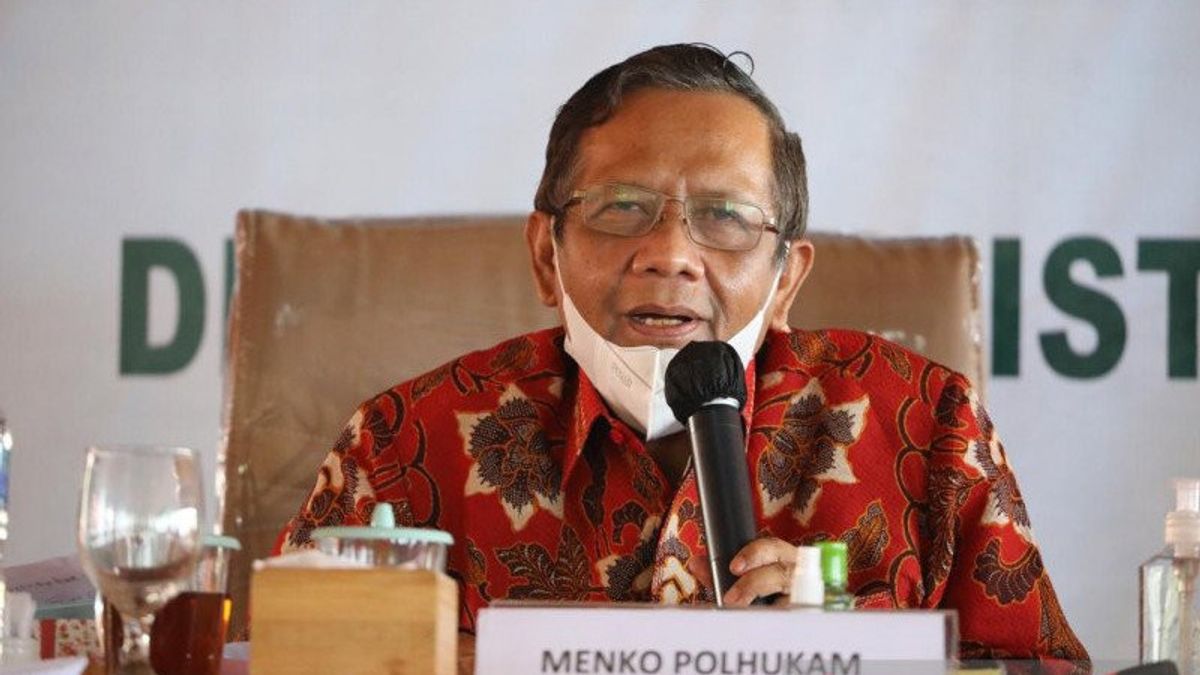JAKARTA - Coordinating Minister for Political, Legal and Security Affairs (Menkopolhukam) Mahfud MD mentioned three types of extremism that can lead to acts of terrorism, namely jihadist extremism, takfiri extremism, and ideological extremism.
"Three types of extremism can lead to acts of terrorism and intolerance, and have the potential to divide national unity, namely jihadists, takfiri, and ideological extremism," said Mahfud MD, quoted by Antara, Saturday, February 5.
Jihadist extremism, said Mahfud, is the most extreme. This extremism kills other people who don't agree with it or even kills certain people and groups who are considered to be hindering the realization of their understanding.
“For example, this extremism is ISIS (Islamic State of Iraq and Syria) and several terrorism groups in Indonesia. They not only attack groups that are considered as opponents, but also parties who are seen as hindering their goals," said Mahfud.
Next up is takfiri extremism. This extremism is an understanding that considers other understandings, even though they are one religion, to be misguided, unbelievers, which must not only be shunned, but also antagonized.
"Group identification is not only at the level of thought, but also at certain symbols," he said.
The third type is ideological extremism. This extremism is soft but still dangerous.
Those who are involved with this extremism have certain beliefs that are considered the most correct and blame the beliefs of others, even national ideologies such as Pancasila are called heretical.
"They are trying to change Pancasila by influencing thinking through educational institutions and discussions, as well as infiltration brochures that Pancasila is wrong and must be replaced," said Mahfud.
The English, Chinese, Japanese, Arabic, and French versions are automatically generated by the AI. So there may still be inaccuracies in translating, please always see Indonesian as our main language. (system supported by DigitalSiber.id)









